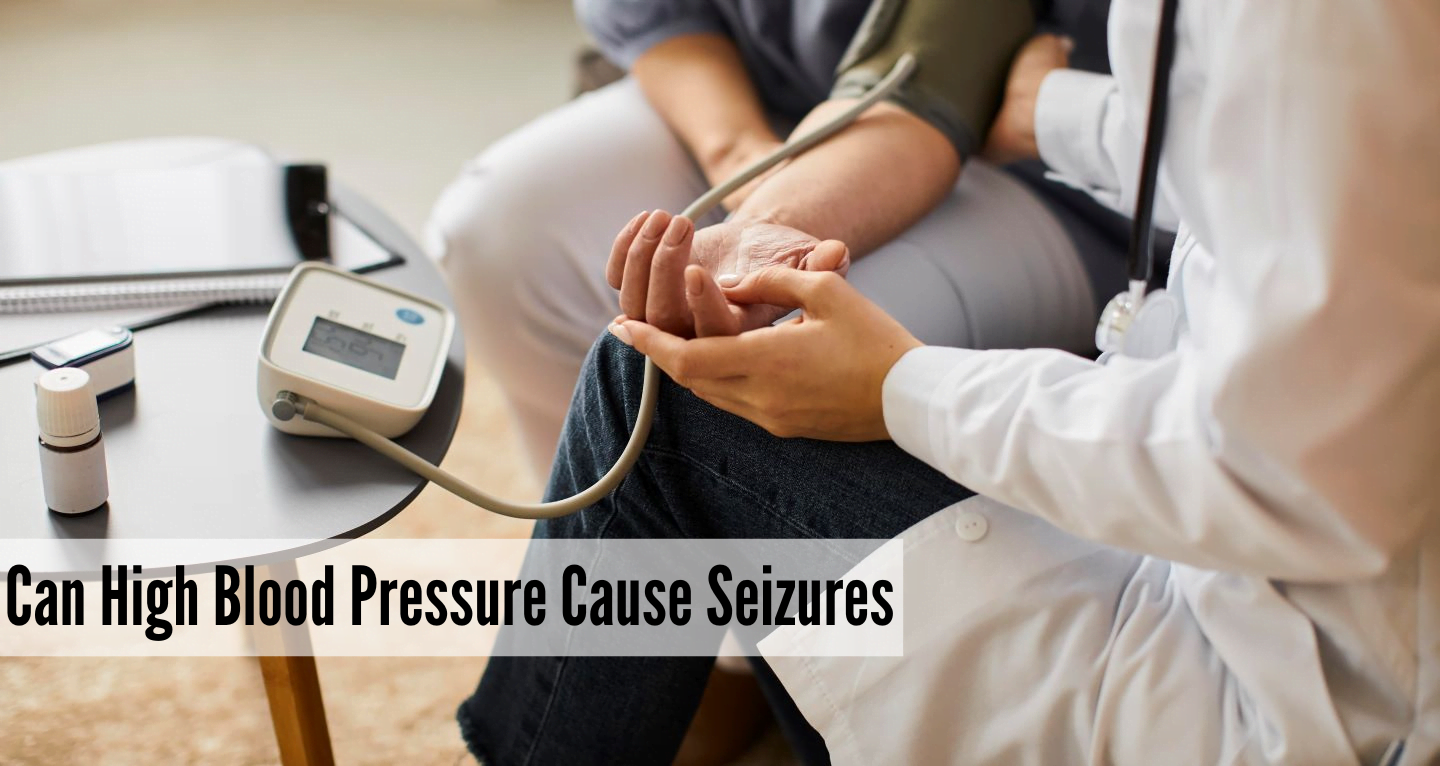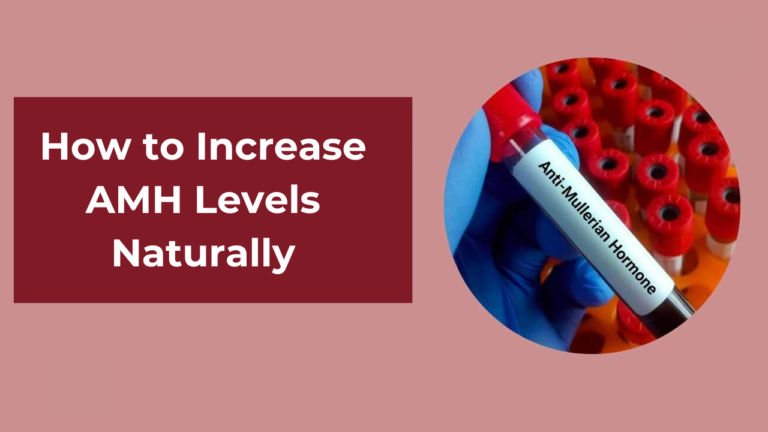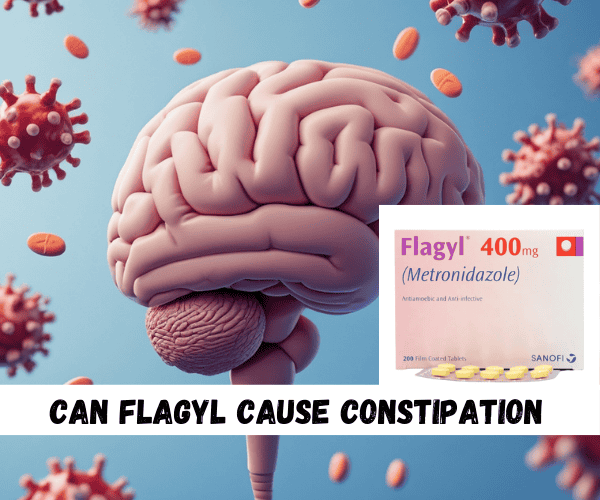Can High Blood Pressure Cause Seizures?

High blood pressure (hypertension) is a widespread condition affecting millions of people globally. It occurs when your arterial walls experience too much force from blood flowing against them, damaging blood vessels and increasing your risk for serious health conditions like heart disease and stroke. Although most are aware that hypertension increases one’s risk, many do not understand that high blood pressure may also increase seizure risk.
This article will investigate the relationship between high blood pressure and seizures. We will cover what causes high blood pressure, its potential impacts on brain and nervous system function, and its potential role in seizure formation. In addition, we’ll offer tips for controlling your blood pressure to lower its risk and mitigate seizures.
Overview of Seizures
Before we discuss the relationship between high blood pressure and seizures, let’s first get acquainted with what a seizure is. A seizure is defined as an electrical disturbance in the brain that causes sudden behavioral, movement or sensory changes ranging from mild twitching to full loss of consciousness and convulsions.
There are various types of seizures, each caused by unique factors like head injuries, infections, brain tumors or genetic disorders. Sometimes, its origin remains elusive.
Now that we understand what seizures are let’s examine high blood pressure as one potential factor behind them.
What Causes High Blood Pressure?
High blood pressure occurs when the force of blood against your artery walls is consistently too high. This can happen due to various factors, including:
- Genetics: Some people may have a genetic predisposition to developing high blood pressure.
- Lifestyle choices: Unhealthy lifestyle habits such as a diet high in sodium, lack of physical activity, and excessive alcohol consumption can contribute to high blood pressure.
- Other health conditions: Certain medical conditions like kidney disease, thyroid problems, and sleep apnea can cause high blood pressure.
How High Blood Pressure Affects Your Brain and Nervous System
High blood pressure can have serious repercussions for both your brain and nervous system. Your brain requires oxygen and nutrients carried by the blood in order to function normally, so any disruption of this flow could cause strokes, memory loss or seizures, among many other problems.
High blood pressure can have detrimental effects on your brain in several ways. When blood vessels become damaged or narrowed due to high blood pressure, oxygen and nutrients become less available to brain cells for energy delivery.
High Blood Pressure
Before exploring the relationship between high blood pressure and seizures, it’s essential first to understand what causes high blood pressure. Blood pressure refers to the force exerted against your artery walls when your heart pumps; when this force exceeds normal, it can damage them over time and lead to damage to their internal structures.
Multiple factors contribute to high blood pressure, such as genetics, lifestyle choices and health conditions. Here are some risk factors:
Family History: If there is a history of high blood pressure in your family, the likelihood that it affects you could increase.
Age: As we get older, our blood vessels become less elastic and more susceptible to damage – increasing our risk for high blood pressure.
Diet: Consuming too much sodium and too little potassium may contribute to high blood pressure.
Sedentary Lifestyle: Spending too much time sitting or lying down increases your risk for hypertension.
Obesity: Being overweight or obese places additional strain on the heart and increases your risk for high blood pressure.
Chronic conditions: Kidney disease, diabetes and sleep apnea can contribute to high blood pressure.

High Blood Pressure and Your Brain
High blood pressure affects not only your heart and arteries. It can also have severe consequences on your brain and nervous system. When blood flows too freely through your arteries, too much pressure may damage brain blood vessels causing seizures as a result.
High blood pressure increases your risk of stroke. A stroke occurs when a blocked or burst blood vessel disrupts oxygen-rich blood and nutrients from reaching the brain, leading to damage or death of brain cells – this may cause seizure activity as a result of brain damage caused by the stroke.
The Link Between High Blood Pressure and Seizures
Though the precise correlation between high blood pressure and seizures remains obscure, there are multiple pathways in which hypertension could contribute to seizure formation.
As previously discussed, high blood pressure can damage blood vessels in your brain and increase the risk of seizures. Furthermore, it may impair the functioning of your blood-brain barrier (a protective layer that controls what substances enter and leave your brain). When this barrier becomes compromised, harmful substances could enter and High Blood Pressure Cause Seizures.
High blood pressure can alter electrical activity in the brain and contribute to seizure development by damaging small blood vessels that provide oxygen and nutrients to it, leading to abnormal firing of neurons and leading to abnormal electrical discharge from neurons.
As part of treating high blood pressure, certain medications like beta-blockers and diuretics have been linked to seizures as potential side effects. While these medicines reduce your blood pressure, they may alter the electrolyte balance in your body, which increases the risk of seizures.
Managing High Blood Pressure and Reducing Seizure Risk
High blood pressure can be managed effectively through various lifestyle modifications and medications, including decreasing your risk of seizures by keeping it under control. Here are some tips for managing high blood pressure:
Eat healthily: Eating a diet rich in fruits, vegetables, whole grains, and lean proteins will help lower your blood pressure.
Exercise regularly: Engaging in physical activity on at least most days for at least 30 minutes per week will improve heart health and lower your blood pressure.
Maintain a Healthy Weight: For individuals who are overweight or obese, losing even small amounts can significantly lower their blood pressure levels.
Limit alcohol and smoking: Consuming excessive quantities of alcohol and tobacco products can contribute to high blood pressure. By restricting or quitting these habits, you can improve overall health while simultaneously lowering blood pressure.
Take medication as prescribed: If your physician has prescribed medication to assist in managing your high blood pressure, be sure to follow all directions regarding its consumption.
Conclusion
High blood pressure and seizures are two serious health conditions closely connected. Understanding this link can help you better manage your blood pressure and lower the risk of seizures. Consult your doctor for personalized advice and treatment to live a healthier lifestyle that reduces complications caused by both high blood pressure and seizures. It is vitally important to be mindful of this potential connection and take proactive measures towards maintaining a healthier lifestyle for overall well-being.
FAQ:
Is There A Link Between High Blood Pressure and Seizures?
Evidence suggests there may be an association between high blood pressure (hypertension) and seizures; individuals who suffer from hypertension have an increased risk of having seizures.
What effects can high blood pressure have on the brain and nervous system?
High blood pressure can damage brain blood vessels, compromise the functioning of the blood-brain barrier, disrupt electrical activity in the brain and eventually contribute to seizure development.
What are some strategies for managing high blood pressure and lowering seizure risk?
Achieving this through healthy diet and lifestyle practices such as regular exercising, maintaining a healthy weight through appropriate dieting and weight management techniques, restricting alcohol and smoking cessation programs, and taking prescribed medication can all help manage blood pressure effectively and lower seizure risk.
Should I be concerned that having high blood pressure could put me at risk of seizures?
A: Although there may be an association between high blood pressure and seizures, it’s wise to consult your physician in order to obtain personalized advice and treatment for managing it effectively and decreasing your risk of seizures. By controlling it effectively, proper management may reduce this risk significantly.




